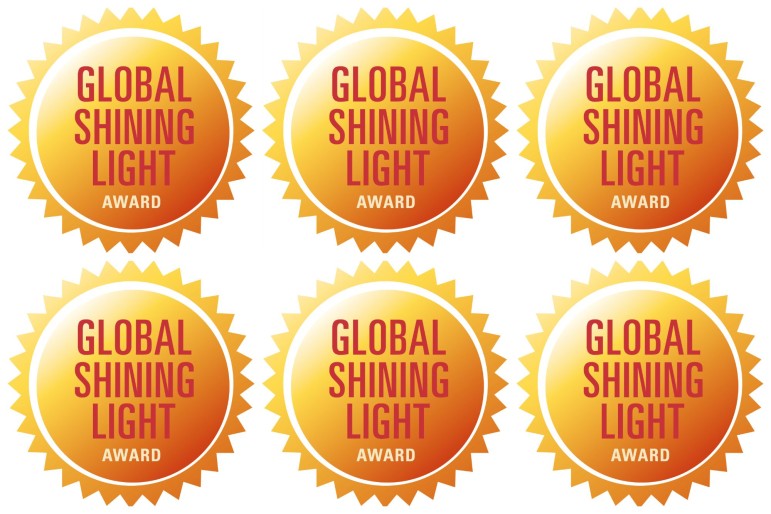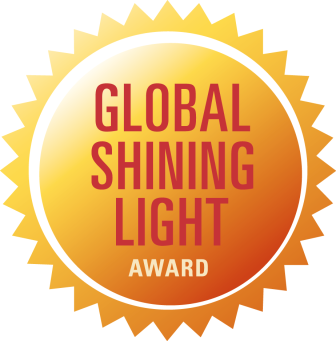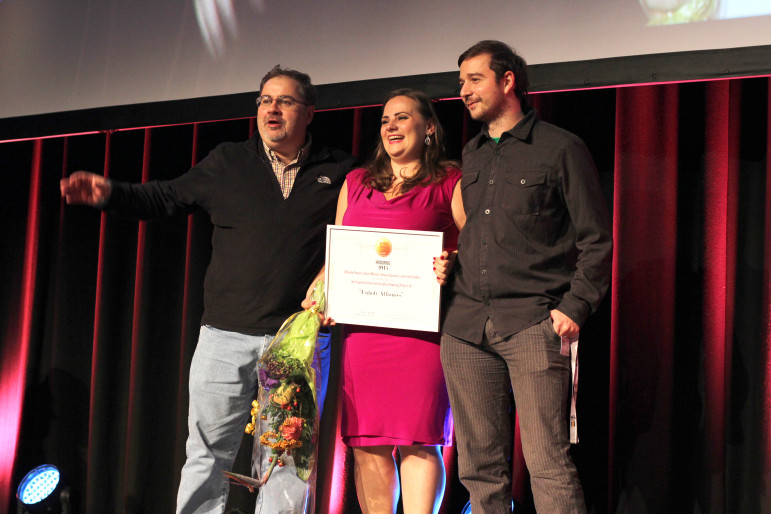

Stories from East Europe, Brazil Win Shining Light Award
 Winners of the sixth Global Shining Light Award were announced at the Global Investigative Journalism Conference tonight in Lillehammer, Norway. The prize honors investigative journalism conducted in a developing or transitioning country, done under threat, duress, or in the direst of conditions.
Winners of the sixth Global Shining Light Award were announced at the Global Investigative Journalism Conference tonight in Lillehammer, Norway. The prize honors investigative journalism conducted in a developing or transitioning country, done under threat, duress, or in the direst of conditions.
The award drew 76 submissions received from 34 countries, for stories published or broadcast between January 1, 2013 and December 31, 2014.
First place was awarded to two series: “Unholy Alliances,” on Montenegro as a Mafia state, by the Organized Crime and Corruption Reporting Project; and “Empire of Ashes,” by Brazil’s Gazeta do Povo, on tobacco smuggling and organized crime in South America.
In addition, the judges in their discretion decided to honor a third series with a citation of excellence: YanukovychLeaks, for the team investigation that exposed the corruption of Ukraine’s fleeing ex-president.
An international panel of judges selected this year’s winners from 12 finalists, and found the competition extraordinary.
“The Global Shining Light Awards show us that the flame of investigative journalism remains alive, even in the most trying circumstances,” noted Columbia University’s Sheila Coronel, one of the judges. “Defying risks and threats, determined journalists continue to hold power to account. The winners uphold the highest standards of investigative reporting.”
“These stories cut through the fog of obscurity with outstanding reporting, writing and research that provide deep insights and exposes corruption and bad guys,” added another judge, Syed Nazakat of the Centre for Investigative Journalism, India. “This kind of fact-driven reporting and brave storytelling, as our winners have done today, is going to have a lasting impact.”
The winners are:
“Unholy Alliances,” Organized Crime and Corruption Reporting Project, Montenegro (2014). The team: Reporters: Miranda Patrucic; Dejan Milovac; Stevan Dojcinovic; Lejla Camdzic. Editors: Drew Sullivan, Jody McPhillips, Rosemary Armao. This year-long investigation exposed how Montenegro’s once-untouchable Prime Minister Milo Djukanovic and his family bank are at the center of an unholy alliance of government, organized crime, and business. Far from a model candidate for the EU, Montenegro in effect functions as a mafia state.
“Empire of Ashes,” Gazeta do Povo, Brazil (2014). Team: Mauri König with Albari Rosa and Diego Antonelli (Brazil); Martha Soto (Colombia); and Ronny Rojas (Costa Rica). A five-month investigation revealed how cigarette smuggling is overtaking marijuana and cocaine as the most profitable racket in parts of Latin America. The illicit trade is reshaping the geopolitics of organized crime in South America, and is covertly led by Paraguay President, Horacio Cartes.
A citation of excellence to:
“YanukovychLeaks,” Yanukovychleaks.com, Ukraine (2014-15). Team: Dmytro Gnap; Anna Babinets; Vlad Lavrov; Oleksandr Akimenko; Katya Gorchinskaya; Natalie Sedletska; Oleh Khomenok; Mariya Zemlyanska; Olesya Ivanova; Maksym Opanasenko; Kateryna Kapliuk; Denys Bigus.
In the chaotic days of Ukraine’s 2014 revolution, an impromptu team of journalists banded together to rescue 25,000 documents nearly destroyed by the country’s fleeing president. Their work documented an extraordinary history of corruption and became evidence in criminal cases against Yanukovych and his cronies for stealing millions of dollars.
This year’s judges were a prestigious group from six countries: John Bones, senior reporter for Norway’s Verdens Gang daily and vice chair of SKUP; Sheila Coronel, academic dean of the Graduate School of Journalism at Columbia University in New York and co-founder of the Philippine Center for Investigative Journalism; Oleg Khomenok, investigative journalism trainer with Internews in Ukraine; Syed Nazakat, editor-in-chief of the Centre for Investigative Journalism, India, and former special correspondent at The Week newsmagazine; Marcela Turati, noted human rights reporter and co-founder of Periodistas de a Pie (Journalists on Foot); and Mzilikazi wa Afrika, Sunday Times investigative reporter in Johannesburg, South Africa, and a winner of the Shining Light Award in 2013.
The Global Shining Light Award is sponsored by the Global Investigative Journalism Network, an association of 118 nonprofit groups in 54 countries that work to support and spread investigative reporting. Founded in 2003, GIJN helps organize regional and international conferences and workshops, assists in the formation and sustainability of organizations dedicated to investigative and data journalism, and provides resources and networking services for investigative journalists worldwide.
For more information contact: secretariat@gijn.org. *











